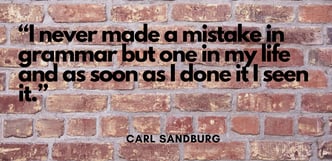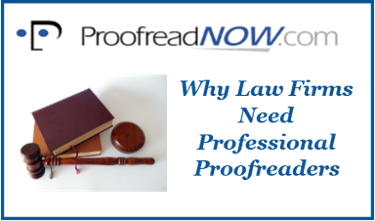 The internet is amazing and messy. It gives nearly everyone the chance to have a voice, to create, and to showcase their skills, especially writers. For work or for fun, whether you consider yourself a writer or not, if you’ve ever published or shared anything online that you’ve written, you’ve probably wondered whether you should copyright it. Which brings us to the downside: Worldwide access to virtually everything that’s published online is often paired with a shocking amount of plagiarism/virtual theft.
The internet is amazing and messy. It gives nearly everyone the chance to have a voice, to create, and to showcase their skills, especially writers. For work or for fun, whether you consider yourself a writer or not, if you’ve ever published or shared anything online that you’ve written, you’ve probably wondered whether you should copyright it. Which brings us to the downside: Worldwide access to virtually everything that’s published online is often paired with a shocking amount of plagiarism/virtual theft.
- We’ve seen it:
- A LinkedIn post with three words changed from the original writer’s.
- A homepage or logo or tagline that is almost identical to a competitor’s.
- A family’s fake GoFundMe page with a story copied directly from a new site.
- We’ve committed it:
- Reshared a story we didn’t realize was under copyright.
- Used a source without citing it correctly.
- Reposted a funny image that had a user license.
- We’ve been the victim:
- Your work appears on somebody else’s site without attribution.
- The greeting card you submitted for publishing is rejected, but you see it, word for word, by the same company, in a grocery store a couple of years later.
- A client refuses to pay for a white paper you wrote but broadcasts it to their email list anyway.
In a time of resharing, reposting, and memes rehashed to kingdom come, it’s sometimes hard to know where the line is between appropriate attribution and illegal reuse. But we do know we want our hard work to stay ours, for good (and the same for other creatives).
So is copyrighting an important way to protect your written work? And if it’s worth it, how do you go about doing it?
Copyright Protection Is Automatic
According to the U.S. Copyright Office, “Your [written] work is under copyright protection the moment it is created and fixed in a tangible form that it is perceptible either directly or with the aid of a machine or device.” This applies to both published and unpublished works.
So as soon as you type something on your computer and save it (even before you share it on an online platform or in an email), it’s automatically copyrighted. Anything you share on your own website or on your own blog is also automatically under copyright protection.
3 Reasons Why You Should Officially Copyright Written Work
If everything you write is automatically under copyright protection, then why would you want to spend money, time, and energy formally registering your work with the U.S. Copyright Office? Great question.
Here are three important reasons you should consider officially registering your written work with the U.S. Copyright Office:
- If someone copies your work and tries to pass it off as their own or tries to sell it without your consent, you’ll have a public record proving you’re the rightful owner of the written work in question—even if they claim they innocently copied your work and weren’t aware you wrote it. This makes it much easier to take a plagiarizer or infringer to court and win a case, collect damages, and evade excessive court-related fees.
- If made before or within five years of publication, a registered copyright establishes sufficient evidence in court concerning the validity of the copyright and the facts stated in the copyright certificate.
- Having a registered copyright prevents others from publishing, sharing, or selling your work in its entirety across various platforms without your consent, even if they are attributing the work to you. You can legally send them a “cease and desist” letter.
The benefits often outweigh the costs of copyright. For some, the peace of mind alone that copywriting written work provides is reason enough to register.
3 Steps to Formally Register Your Written Work
Now for the “how.” Here are a few basic steps for registering your written works with the U.S. Copyright Office.
- Gain a basic understanding of copyright law. Make sure you know what a copyright is (e.g., how it differs from a patent) and what’s protected and not protected under an official copyright. This includes why, when, and where to use copyright symbols and abbreviations. You also need to know when a copyright expires.
- Create a record. Once you create an original work, it’s important that it’s “fixed” or recorded in some way to be eligible for copyright protections. Basically, this just means that you need to have something written down or recorded. Anyone can have an idea in their head, but something cannot be copyrighted until it is printed on a piece of paper, stored on a computer in a file, or has some other form of tangible and legible record.
- Register your copyright with the U.S. Copyright Office. Fill out an application and pay the associated fee. You’ll be required to send or upload a copy of the written work you want formally copyrighted.
The wait time for approval varies, but it’s safe to say that you shouldn’t expect a quick turnaround. That’s the long and short of it.
Is there anything you’ve copyrighted? If you don’t copyright your written work, why not? Let us know in the comments.
Want a more robust explanation of copyright, copyrights versus trademarks, the benefits of trademarking, and steps to do so? Check out this guide: How to Trademark & Copyright a Logo or Name: The Beginner’s Guide to Trademark and Copyright Registration.




